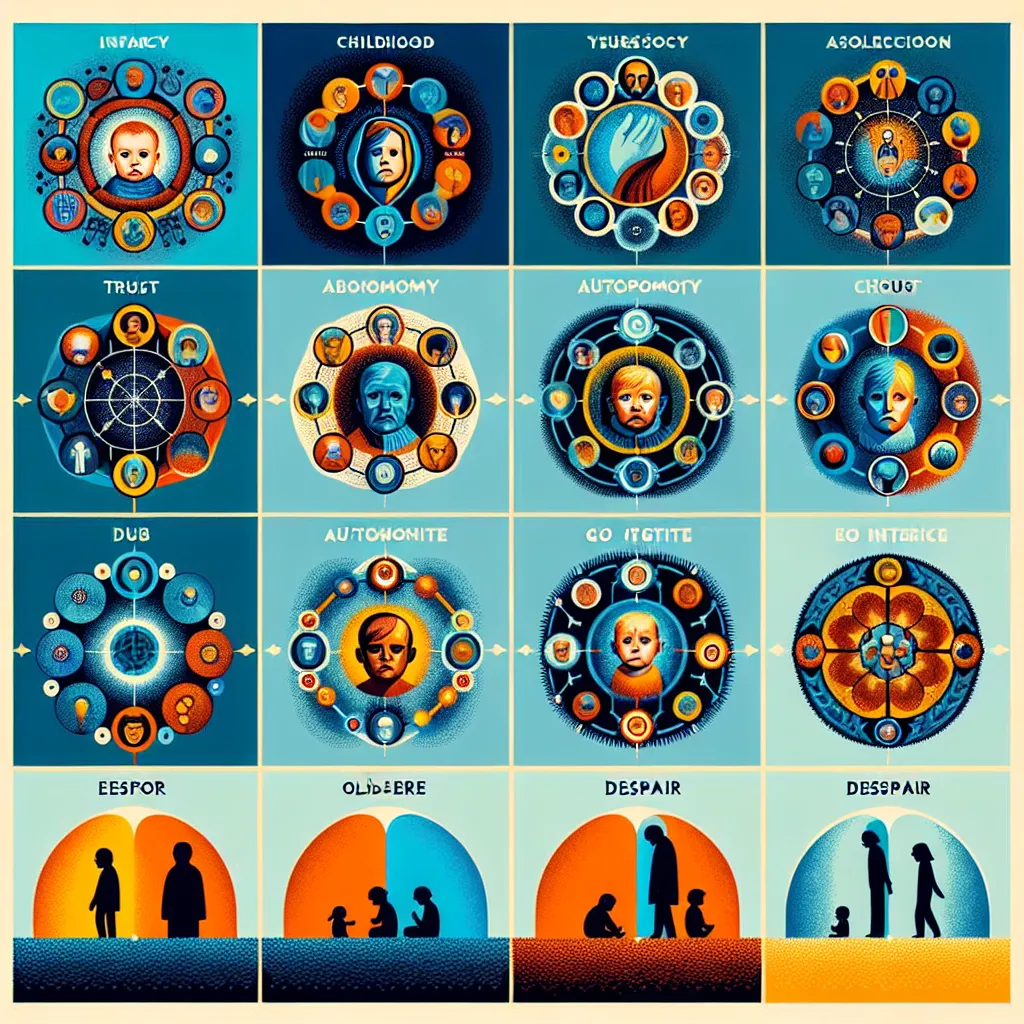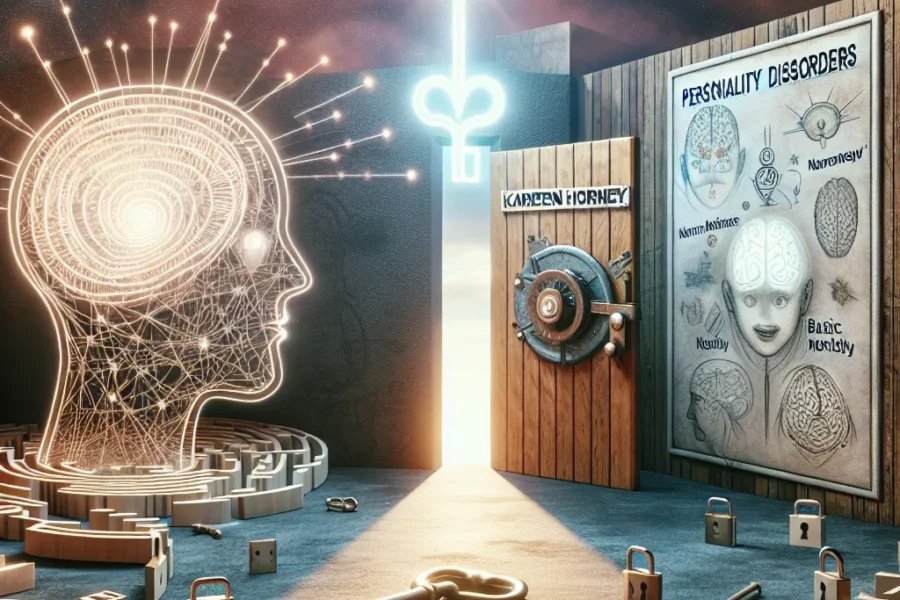Erik Erikson’s Insightful Perspective on Human Development
The journey of human development is a complex and multifaceted process that encompasses physical, emotional, cognitive, and social growth. One of the most significant figures in the field of developmental psychology, Erik Erikson, introduced a groundbreaking theory that continues to influence our understanding of human development. Erikson’s psychosocial theory emphasizes the impact of social experiences across the lifespan and delineates eight distinct stages, each characterized by a psychosocial crisis that individuals must navigate to achieve psychological growth.
Erikson’s Early Life and Influences
Erik Homburger Erikson was born on June 15, 1902, in Frankfurt, Germany. His early life experiences and challenges played a vital role in shaping his interest in identity and development. Raised by his Jewish mother and stepfather, Erikson often grappled with a sense of personal identity, an experience that later informed his theories about the identity crisis faced during adolescence. Erikson’s diverse background and journey through various cultural and academic environments enriched his perspective and contributed to his holistic approach to human development.
Erikson’s Psychosocial Theory Overview
Erikson’s psychosocial theory is based on the premise that development occurs throughout life in a series of stages, each with its unique challenges and opportunities for growth. Unlike his predecessor, Sigmund Freud, Erikson’s theory extends beyond childhood and adolescence into adulthood, asserting that development is a lifelong process. He believed that at each stage, individuals face a crisis between two opposing tendencies, and the resolution of this crisis leads to the development of specific virtues or strengths.
The Eight Stages of Development According to Erikson
Erikson’s theory is structured around eight sequential stages:
1. Trust versus Mistrust (0 – 18 months): This stage focuses on the infant’s basic needs being met by their caregivers. Successful navigation results in the virtue of hope.
2. Autonomy versus Shame and Doubt (18 months – 3 years): As toddlers begin to assert their independence, they develop a sense of autonomy. If encouraged, the virtue attained is willpower; if criticized, they may experience shame and doubt.
3. Initiative versus Guilt (3 – 6 years): During this stage, children become more assertive and take initiative. Encouragement leads to a sense of purpose, while discouragement may cause guilt over desires and goals.
4. Industry versus Inferiority (6 years – puberty): School-aged children work on competence and mastery of skills. Successful mastery results in the virtue of competence, while repeated failure can result in feelings of inferiority.
5. Identity versus Role Confusion (Adolescence): In adolescence, individuals search for a sense of self and personal identity. Successfully establishing a clear identity leads to fidelity, while failure results in role confusion.
6. Intimacy versus Isolation (Young Adulthood): This stage focuses on forming intimate relationships. Successful relationships foster love, while failure can lead to isolation and loneliness.
7. Generativity versus Stagnation (Adulthood): Adults strive to create or nurture things that will outlast them, leading to care and generativity; failing to do so may result in stagnation and self-absorption.
8. Ego Integrity versus Despair (Late Adulthood): In the final stage, individuals reflect on their lives. A sense of fulfillment results in wisdom, while regret can lead to despair.
Application of Erikson’s Theory in Modern Contexts
Erikson’s psychosocial theory has widespread applications across various fields, including education, parenting, counseling, and social work. Educators leverage Erikson’s insights to create supportive learning environments that cater to the developmental needs of students at different age levels. In parenting, understanding these stages allows parents to support their child’s emerging sense of self and encourage growth at each critical junction.
In the realm of mental health, therapists use Erikson’s stages to diagnose and treat various psychological issues that stem from specific crises. Social workers apply the theory to understand the challenges faced by individuals at various life stages and aid them in overcoming societal pressures that may impede psychosocial development.
Erikson’s Legacy and Contributions to Developmental Psychology
Erik Erikson’s contributions to developmental psychology have endured the test of time and remain relevant to the discussions around human growth and potential. By contextualizing development within a sociocultural framework, Erikson highlighted the significance of cultural, historical, and social forces in shaping the human psyche. His recognition of the lifelong process of development also contributed to a more nuanced understanding of adulthood and aging, altering perceptions of the potential for growth and adaptation throughout life.
Erikson’s Perspective on the Role of Culture and Society
Erikson’s theory emphasizes that human development is influenced not only by innate biological factors but also by the cultural and societal context in which an individual lives. His extensive cross-cultural research, including studies with the Sioux and Yurok tribes, illustrated the role that culture plays in shaping the specific challenges individuals face at each stage of development.
Criticism and Continuing Relevance of Erikson’s Theory
While Erikson’s theory has received praise for its comprehensive approach to human development, it has also faced criticism. Some argue that his focus on Western societal norms may not be universally applicable across different cultures. Additionally, his theory has been critiqued for its gendered perspective and lack of emphasis on the female developmental experience.
Despite the critiques, the relevance of Erikson’s model in the contemporary world remains unquestioned. With increased awareness of diverse cultural experiences and the changing dynamics of gender roles, Erikson’s theory serves as a foundational platform from which to explore these evolving aspects of human development.
Erikson’s Influence on Contemporary Developmental Thought
The psychosocial stages delineated by Erikson continue to influence contemporary developmental theories and research. His work has inspired subsequent theorists to delve deeper into specific aspects of development, such as identity formation and the interplay between individual growth and societal influences.
Conclusion
Erikson’s insightful perspective on human development transcends its era, providing a valuable framework for exploring the complexities of growth and maturation across the lifespan. His eight-stage theory of psychosocial development underscores the importance of navigating a series of crises and emerging with a stronger sense of self and purpose. As society continues to evolve, the application of Erikson’s fundamental concepts provides a critical lens for understanding human behavior, relationships, and the continual journey of self-discovery that defines our existence.



Leave a Comment